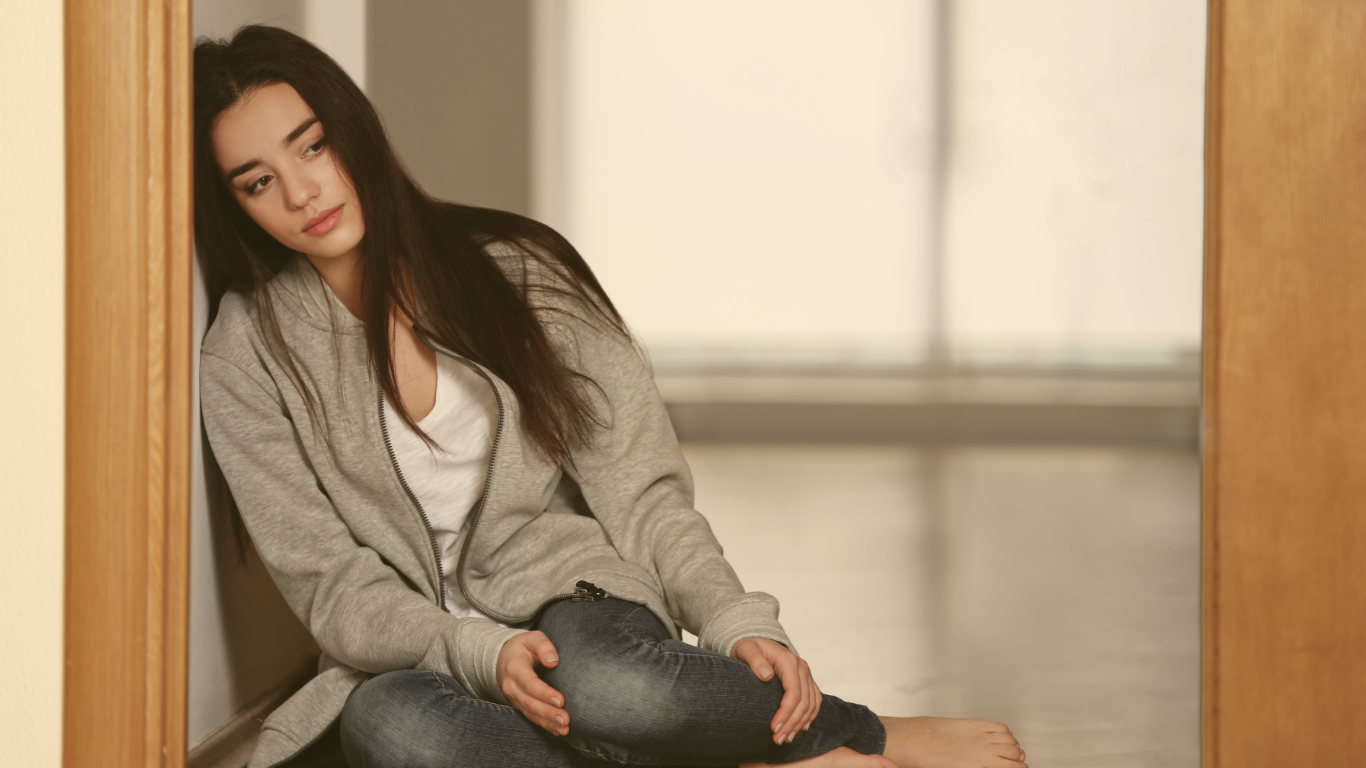Depression Treatment in Atlanta, GA

Depression affects millions of Americans each year, and finding the proper treatment can feel overwhelming. MARR Treatment Centers’ depression treatment in Atlanta, GA, provides a place of refuge and recovery for those struggling with mental health challenges. Recent studies show that over 20% of depression patients do not receive proper treatment, making access to quality care essential.
Our depression treatment center in Atlanta combines evidence-based therapies, medication management, and personalized care plans to help clients recover and thrive. Our facilities employ licensed therapists, psychiatrists, and mental health specialists who work together to address symptoms like persistent sadness, loss of interest, and changes in sleep patterns.
MARR Treatment Centers have adapted to meet diverse patient needs, offering a therapeutic community and outpatient treatment options. The city has emerged as a major Southeastern healthcare hub, making it easier for people to access quality depression treatment close to home.
Why MARR Treatment Centers Could Work for You
By emphasizing long-term engagement, community as the change agent, and comprehensive attention to all aspects of well-being, we offer a rehabilitation experience designed to foster lasting recovery through transformative personal change rather than simply managing addiction symptoms.
Our treatment model at MARR is built upon four fundamental philosophies, which distinguish us from many other rehabilitation facilities. These core principles have guided our approach for over 45 years and represent the foundation of our treatment methodology.
Understanding these philosophical differences provides insight into how we conceptualize addiction recovery differently than conventional centers.
Our first distinguishing philosophy is our commitment to gender-separate treatment. We believe that men and women experience addiction and recovery differently, particularly in how they process emotions, navigate relationships, manage trauma, and express vulnerability.
Our second core philosophy centers on treating the whole person rather than focusing narrowly on addiction symptoms. We take a holistic approach that addresses mental and cognitive health, physical well-being, and spiritual recovery as interconnected elements of the healing process.
Our third distinctive philosophy involves our emphasis on structure and accountability for long-term success. We explicitly reject short-term treatment models, maintaining that “short-term treatment leads to short-term results.”
Our fourth and perhaps most distinctive philosophy is creating “the treatment community” as the primary agent of change. This community-based model emphasizes the therapeutic value of living with others in recovery.
This approach differs significantly from rehabilitation centers that rely more heavily on individual therapy or group sessions without the intensive shared living experience we provide at MARR.

A Closer Look at Depression
Depression affects millions of people and can take different forms with varying symptoms and severity levels. Our mental health professionals use specific criteria to diagnose depression and create effective treatment plans.
Types of Depression
Major Depressive Disorder (MDD) is the most prevalent form of depression. It is characterized by persistent sadness and a significant loss of interest or pleasure in previously enjoyed activities, often called anhedonia.
To be diagnosed with MDD, individuals must experience symptoms for at least two weeks.
These can include:
- Emotional Symptoms: Profound sadness, emptiness, irritability, and hopelessness.
- Cognitive Symptoms: Difficulty concentrating, indecisiveness, and recurrent thoughts of death or suicide.
- Physical Symptoms: Changes in appetite (either increased or decreased), sleep disturbances (insomnia or hypersomnia), fatigue, and psychomotor agitation or retardation.
MDD can severely impair an individual’s daily functioning, affecting work, relationships, and overall quality of life. Treatment usually involves a combination of psychotherapy, medication, or both.
Persistent Depressive Disorder (PDD), formerly known as Dysthymia, is characterized by chronic depression that lasts for at least two years in adults (one year in children and adolescents).
While the symptoms are generally less severe than those of MDD, they are more enduring.
Common symptoms include:
- Emotional Symptoms: General feelings of sadness, gloomy outlook, and low self-esteem.
- Cognitive Symptoms: Difficulty making decisions and maintaining focus.
- Physical Symptoms: Fatigue, changes in sleep patterns, and appetite fluctuations.
Individuals with PDD may feel like they are in a “low mood” for extended periods, which can hinder their ability to enjoy life fully. Treatment often involves psychotherapy and sometimes medication, similar to MDD.
Seasonal Affective Disorder (SAD) is a type of depression that typically occurs during specific seasons, most commonly in the winter months when there is less natural sunlight.
SAD is marked by symptoms that occur during the same season each year.
Common features include:
- Emotional Symptoms: Feelings of hopelessness or worthlessness, irritability, and anxiety.
- Cognitive Symptoms: Difficulty concentrating and decision-making.
- Physical Symptoms: Changes in sleep (often oversleeping), weight gain due to increased appetite (particularly for carbohydrates), and decreased energy levels.
The cyclical nature of SAD can lead to significant impairments in daily life during the affected months. Treatments may include light therapy, psychotherapy, and medication to help manage symptoms effectively.
Psychotic Depression is a severe form of depression that includes symptoms of psychosis, such as hallucinations (seeing or hearing things that are not there) or delusions (fixed, false beliefs).
In addition to typical depressive symptoms, individuals may experience:
- Emotional Symptoms: Severe depression characterized by a lack of interest or pleasure.
- Psychotic Symptoms: Hallucinations or delusions related to guilt, worthlessness, or a belief that one is being punished for transgressions.
Psychotic Depression necessitates immediate treatment, as the hallucinations and delusions can be distressing and may lead to dangerous behaviors. Psychotic Depression treatment often combines antidepressant medications with antipsychotic drugs and psychotherapy.
Situational Depression, also known as Adjustment Disorder with Depressed Mood, occurs as a response to identifiable stressors or traumatic life events, such as job loss, divorce, or the death of a loved one.
The symptoms usually arise within three months of the triggering event and can include:
- Emotional Symptoms: Sadness, anxiety, and feelings of hopelessness.
- Cognitive Symptoms: Trouble concentrating, excessive worry, and difficulty making decisions.
- Physical Symptoms: Changes in sleep and appetite, fatigue, and somatic complaints (e.g., headaches).
Situational depression may significantly disrupt an individual’s ability to function normally, and coping mechanisms may vary widely. Situational depression treatments typically involve psychotherapy to help individuals process their emotions and develop strategies for dealing with the stressor.
Understanding these different forms of depression can help in recognizing symptoms and seeking appropriate treatment, which is essential for effective management and recovery.
Depression and Dual Diagnosis
Many people with depression also have other mental health conditions. This is called dual diagnosis or co-occurring disorders.
Key Points about Dual Diagnosis:
1. Prevalence: Many individuals with depression do not experience it in isolation. The occurrence of an additional condition can complicate the diagnosis and treatment process. Nearly half of individuals with depression will meet the criteria for another disorder at some point in their lives.
2. Complications in Dual Diagnosis Treatment: Dual diagnosis complicates how individuals are treated. For example, substance abuse can mask or worsen depressive symptoms, making it crucial to address both issues concurrently for effective recovery.
3. Symptom Overlap: The symptoms of depression and other mental health conditions often overlap. Anxiety may manifest with symptoms like restlessness or fatigue that can be mistaken for depression. This overlap can lead to misdiagnosis or delays in starting appropriate treatment.
4. Integrated Treatment Approaches: Addressing dual diagnosis requires comprehensive treatment plans incorporating different therapies, medications, and support systems tailored to the individual’s needs. An integrated approach can significantly enhance the chances of successful recovery.
5. Seeking Professional Help: Individuals experiencing depression or any co-occurring mental health issues should consult with mental health professionals who can accurately diagnose their conditions and recommend suitable treatment strategies.
MARR Treatment Centers provide specialized care for patients with multiple conditions.
Common co-occurring conditions include:
- Anxiety disorders
- Substance use disorders
- Post-traumatic stress disorder
- Other trauma-related conditions
Each condition requires its own treatment approach while addressing depression symptoms.
MARR’s Specialized Depression Treatment in Atlanta, GA
We offer multiple levels of care with evidence-based therapies and medical supervision. Our programs for depression treatment in Atlanta, GA provide specialized treatment options tailored to each person’s needs and symptoms.
Partial Hospitalization Program (PHP)
PHP provides structured daily treatment while allowing patients to return home each evening. Treatment occurs 5-7 days weekly for 6-8 hours daily.
Key components include:
- Individual therapy sessions
- Group therapy and skill-building
- Medication management
- Medical monitoring
- Family education and support
Patients receive comprehensive care from a team of psychiatrists, therapists, and mental health professionals. This level works well for those who need intensive support but can safely live at home.
Intensive Outpatient Program (IOP)
IOP offers flexible treatment that fits around work or school schedules. Programs typically meet 3-5 days per week for 3-4 hours per session.
Treatment elements:
- Group therapy focused on coping skills
- Individual counseling sessions
- Psychiatric care when needed
- Life skills development
- Relapse prevention planning
This option suits people stepping down from higher levels of care or those who need more support than weekly therapy.
Therapeutic Community
Our therapeutic community provides a structured environment. Treatment plans are highly individualized, and services may include:
- Daily individual and group therapy
- Medication management
- Support groups
- Recreational therapy
- Nutritional support
- Aftercare planning
Therapeutic communities are best for severe symptoms or when outpatient treatment has not improved them. Our staff monitors your progress constantly and adjusts treatment as needed.

MARR’s Therapeutic Services for Depression Treatment in Atlanta, GA
We provide comprehensive therapeutic services aimed at facilitating recovery and supporting individuals battling addiction and related mental health issues. By offering a range of tailored services—such as individual and group therapy, family support, and holistic treatments—we empower clients to address the underlying issues contributing to their addiction.
Group Therapy
Group therapy is an essential component of our treatment plans. Group sessions allow clients to connect with others facing similar challenges while learning valuable recovery skills. Trained facilitators lead groups.
Some of our group therapy formats include:
- Skills-building workshops
- Process groups
- Expressive art therapy
- Recreational therapy
- Mindfulness meditation
Patients gain support, feedback, and practical coping strategies from both facilitators and group members.
Family Therapy and Support
Family involvement strengthens recovery outcomes by improving communication and understanding.
Sessions help family members:
- Learn about depression and its effects
- Develop supportive communication skills
- Address relationship dynamics
- Create crisis management plans
Psychodrama Therapy
Psychodrama, or Experiential therapy, is a transformative, hands-on approach to mental illness that helps individuals uncover and address the root causes of their struggles. Through active psychotherapy participation in creative and physical activities, individuals gain a deeper understanding of their emotions and behaviors, promoting lasting recovery.
Individual Therapy
Licensed therapists work one-on-one with patients to develop personalized treatment strategies. Cognitive Behavioral Therapy (CBT) helps identify negative thought patterns and develop healthier coping skills.
Dialectical Behavioral Therapy (DBT) combines CBT, mindfulness, and acceptance strategies. DBT teaches essential skills for managing emotions, impulsive behavior, and relationships.
Treatment sessions typically last 45-60 minutes and occur 1-3 times per week based on individual needs.
Common strategies include:
- Behavioral activation
- Mindfulness techniques
- Problem-solving therapy
- Stress management
- Goal setting and achievement tracking
Let Us Lift Your Mood
If you or a loved one is struggling with depression, it’s essential to know that help is available. At our program for depression treatment in Atlanta, GA, we are dedicated to providing personalized, evidence-based treatment tailored to your unique needs.
Don’t let depression control your life; reach out to us today at 678-884-4080 to learn more about our comprehensive therapeutic services and take the first step towards a brighter future. Your path to healing begins now.
